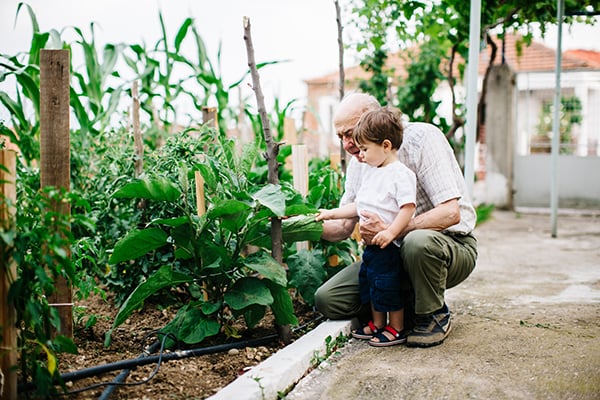Mind your mind - simple steps to reduce stress

Modern life is full of hassles, deadlines, frustrations and demands. We all encounter stress and anxiety from time to time, particularly in times of uncertainty.
Six ways you can reduce stress:
- Connection - keeping in touch with others
- Healthy eating - fuelling your body with nutritious food
- Movement - staying active to boost your fitness and energy levels and support better sleep
- Mindfulness - being present and having a calm mind
- Positive thinking - reducing worry, doing things you enjoy and setting personal goals
What is stress?
Stress is a normal physical response to events that make you feel threatened or upset your balance in some way. It isn’t always bad - in small doses, it can help you perform under pressure and motivate you to do your best. However, in some situations the level of stress or anxiety you experience may hinder your day to day life and increase your risk of chronic illness.
What causes stress?
Stress and anxiety are your brain’s response to a perceived threat. Your brain is readying your body to protect itself through the fight or flight mechanism. For our early ancestors, being able to respond very quickly to a threat was important for survival. To prepare your body to respond under stress your heart rate increases, your senses become heightened and your breathing quickens. You may feel symptoms like tightness in your chest, difficulty swallowing, blushing, feeling lightheaded or shaky or feeling irritable. When you are stressed, your brain gives lower priority to anything the body doesn’t need for fight or flight – including digestion and conscious thought.
In modern life the things that cause stress don’t always benefit from these physical responses. For example, meeting new people, moving or getting ready for guests. Stress is related to health effects including headaches, high blood pressure, digestive and stomach problems, heart disease and diabetes.
When you are feeling stressed you may have difficulty sleeping, find it hard to focus or feel irritable. There are some easy techniques that can help you recognise, manage and help prevent unhealthy levels of stress.
What is mindfulness?
Mindfulness means paying attention to the present moment and accepting things for what they are without judgement. Research shows many benefits of mindfulness including feeling better about life, improved sleep, help with managing chronic pain, lower blood pressure and improved digestion. Being mindful makes it easier to enjoy the happy moments in life.
Simple mindfulness exercises
There are many ways to practise mindfulness, but the goal is always to pay attention and be fully engaged in the present moment. Some simple exercises include:
Mindful breathing: You can do this anywhere at any time. Try to sit down, take a deep breath and close your eyes. Focus on your breath as it moves in and out of your body. Notice the air moving through your mouth and the rise and fall of your chest. Sitting and breathing for even just a minute causes the breath to deepen and the mind to calm, allowing you to pause and be in the moment. It can be helpful to do this exercise lying in bed if you have difficulty sleeping.
Mindful walking: While walking, pay attention to the feel of the ground under your feet as each part of your foot, from the sole to the heel, touches the ground. Observe what is around you as you walk, staying in the present. Let your other thoughts go. Notice the sky, the colours, the movement of the clouds. Feel the wind and the temperature on your skin. Stay in the present, enjoying the moment.
Mindful eating: Turn off any distractions like the TV, computer, music or phone. Sit down in a chair with your back straight. When eating your meal pay full attention to each mouthful – how it looks, how it smells, the movements you use to raise it to your mouth, the texture and the taste as you chew slowly.
Mindful listening: Try this first by listening to the sounds around you – the birds outside, the car in the distance, the television in the next room. You can also try to listen to calming music. The idea is to listen intently without judgement – don’t think, hear. Now try listening to another person and give your full focus to the person talking.
To find out more about mindfulness go to www.boltonclarke.com.au/behealthy
It’s important to talk to your health care provider right away if you are feeling overwhelmed or cannot cope. Free support services that operate 24/7 include Lifeline (13 11 14, lifeline.org.au) or BeyondBlue (1300 224 636, beyondblue.org.au).
Download a PDF of this white paper here.
Be Healthy and Active
Free health and wellbeing sessions
Bolton Clarke’s Be Healthy and Active program provides free, practical sessions to help you get the most out of life.

Recent white papers
Information for consumers on topics about health, wellbeing and active ageing.

